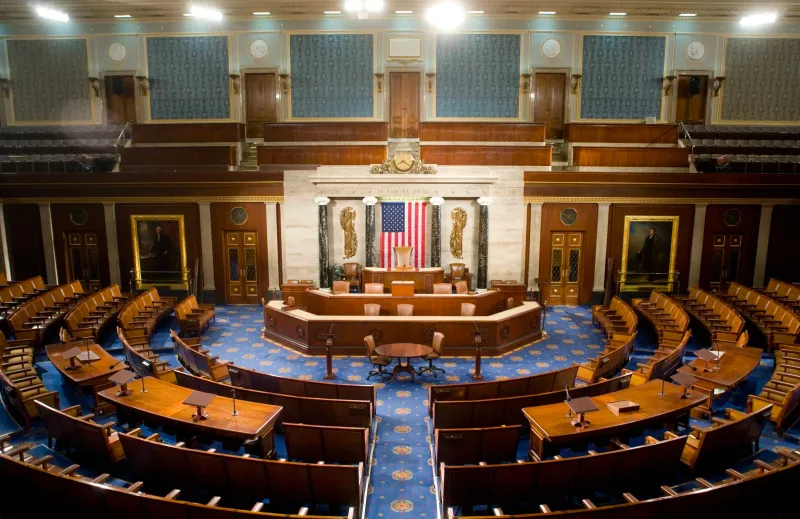
The US government shutdown has reached its 36th day, making it the longest in history.
The closure began on 1 October after Congress failed to agree on a funding deal, leaving federal workers unpaid and millions of Americans without essential services.
Senate Majority Leader John Thune, the chamber’s top Republican, expressed cautious optimism. "I just think, based on, sort of, my gut of how these things operate, I think we're getting close to an off-ramp here," he said.
The previous record was a 35-day shutdown during Donald Trump’s first term in 2019.
The ongoing shutdown is affecting federal employees and the public. Thousands of government workers have missed pay, and air travel faces growing disruption. Transportation Secretary Sean Duffy warned that continued closure could force parts of US airspace to close.
"If you bring us to a week from today, Democrats, you will see mass chaos," Duffy said. "You will see mass flight delays. You'll see mass cancellations, and you may see us close certain parts of the airspace, because we just cannot manage it because we don't have the air traffic controllers."
Low-income Americans relying on Snap benefits are also affected. Initially, the Trump administration said no payments would be issued in November, but a US court ordered contingency funds be used. Trump, however, posted on Truth Social: "[Snap benefits] will be given only when the Radical Left Democrats open up government, which they can easily do, and not before." The White House insists it will follow the court order.
Senate votes on a short-term funding bill have repeatedly failed, despite the House passing it in September. Democrats demand healthcare subsidy extensions for low-income Americans, while Republicans accuse them of using unrelated policy as leverage.
Thune stressed the urgency of compromise, noting the current funding only lasts until 21 November. "If we don't start seeing some progress or some evidence of that by at least the middle of this week, it's hard to see how we would finish anything by the end of the week," he said.
Moderate lawmakers from both parties have recently signaled willingness to negotiate a deal ahead of Thanksgiving on 27 November.













Aldrige Kennedy
Leave a Comment
Your email address will not be published.